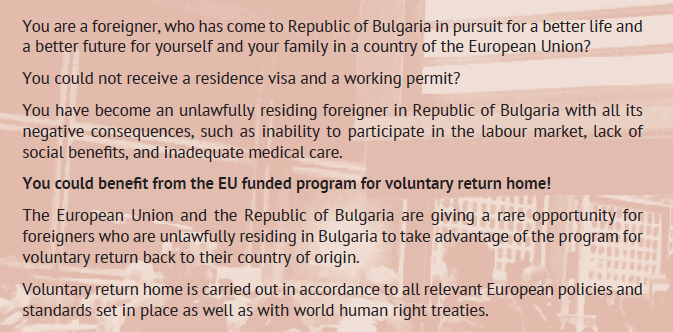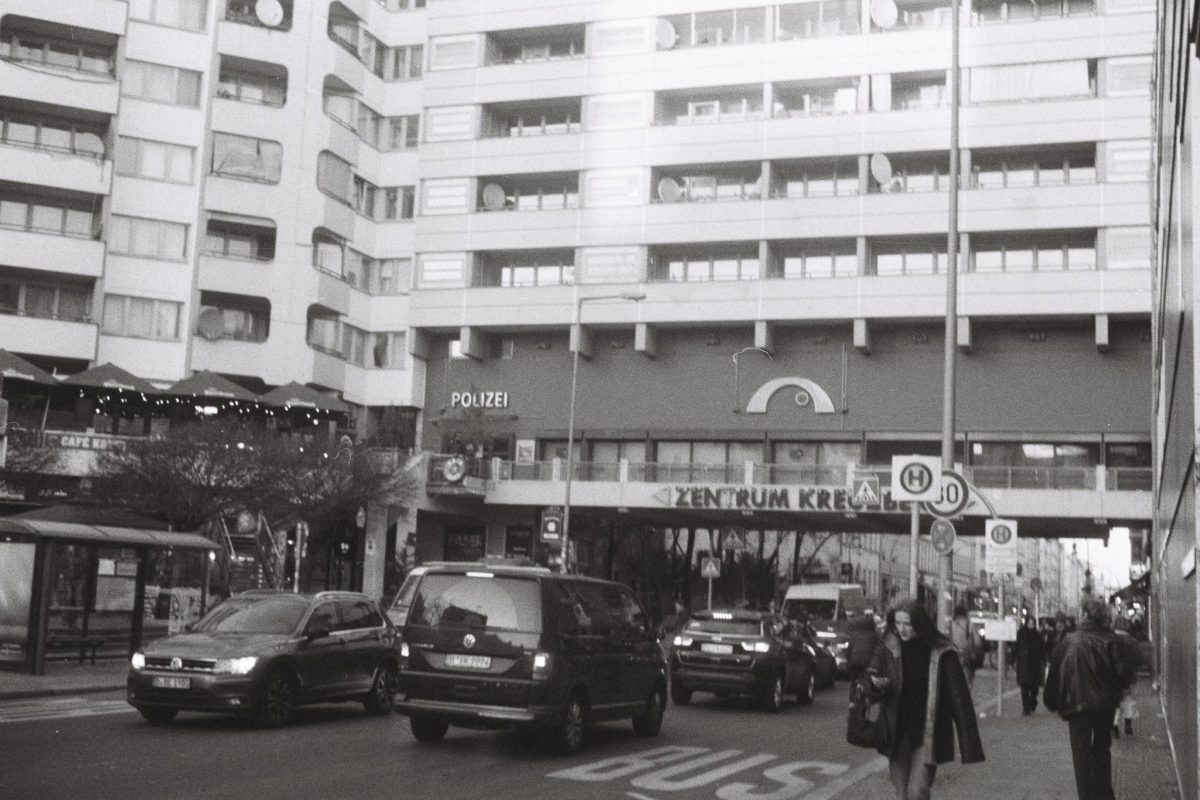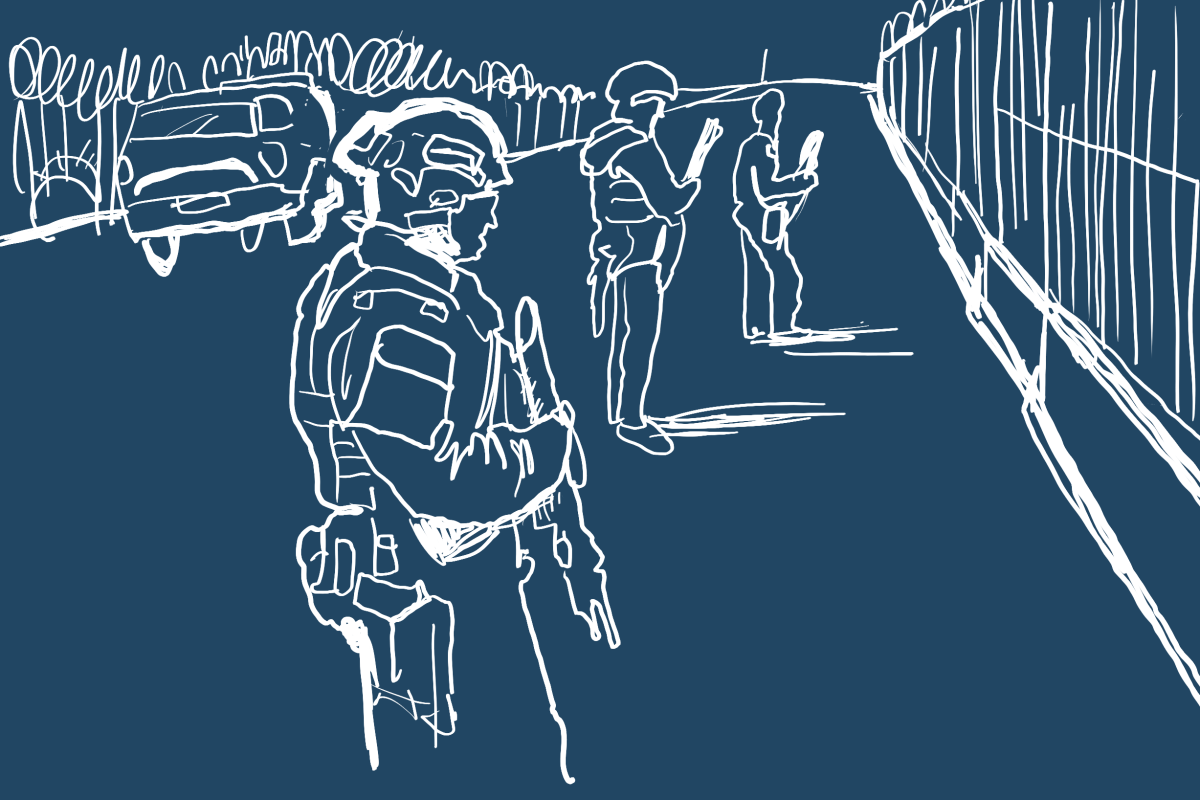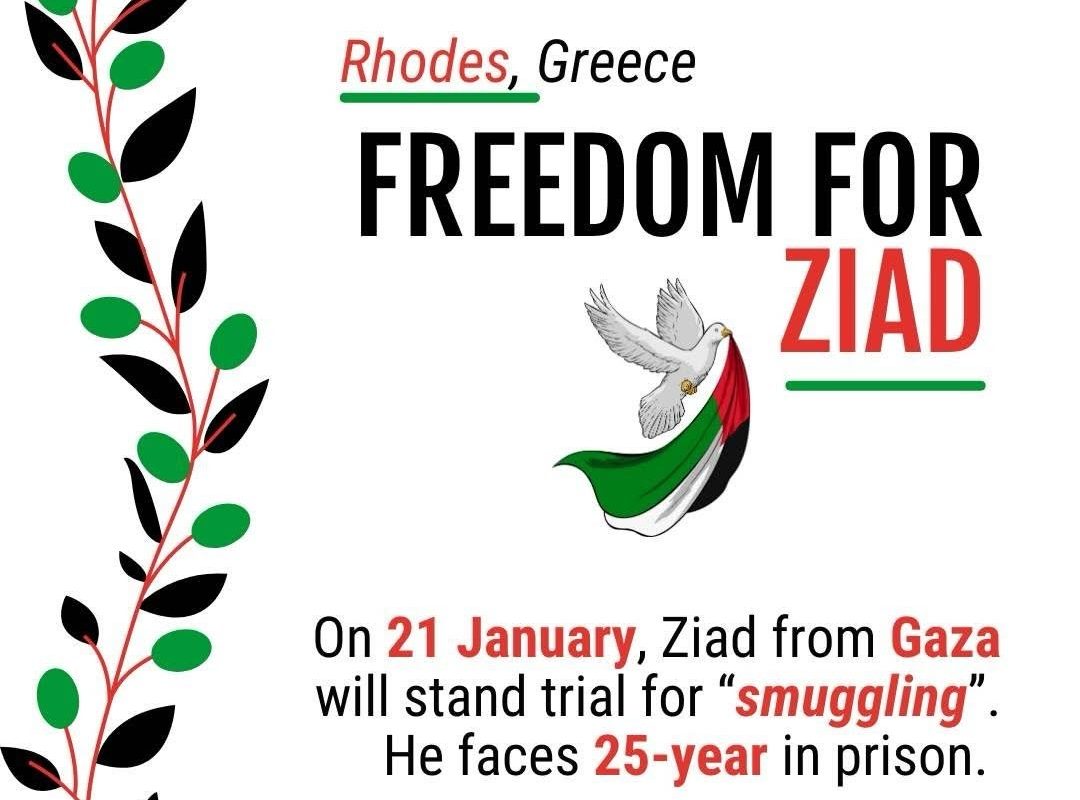‘The Jungle’, was the sprawling refugee camp near Calais. In 2016 it was dismantled. Since then almost no images of refugees in France reaches screens in England. Our media images are dominated by the arrival of refugee ‘small boats’ – unseaworthy inflatables. They discharge exhausted and relieved people onto the south coast beaches. But smaller encampments are still dotted around close to the beaches of Northern France.
Last month with friends, I travelled to France to volunteer with the UK charity Care for Calais. Warehouses are kitted out with floor to ceiling shelves, bodged together from scrap wood and pallets. Van loads of donations are shipped in, sorted and repacked for distribution: warm clothes, sleeping bags, hygiene products and footwear. In the mornings we opened up and checked donated tents salvaged at the end of UK music festivals. Tents, bedding and clothing are needed in abundance because police routinely turn up and bulldoze the camps, trashing the refugees’ fragile nylon homes and meagre belongings. The work is constant. Three paid staff manage a through flow of volunteers, some like us come just for a weekend, others stay for months or years.
In the afternoon we visited bare fields across the road from houses on the outskirts of town. Care for Calais visit a different area every day bringing packs of clothes, hot drinks and snacks, mini generators and power panels. Utility alongside distraction and solidarity. Some of the young men played cricket or football. Lots came to charge their phones or get a haircut. Some wanted to practice chatting in English. I volunteered on the English teaching table giving me the incredible privilege of talking to several people at length about their journeys, their aspirations. What they were running from and to.
The next day, after a morning in the warehouse, we parked up on a patch of concrete in Dunkerque beside a large expanse of treeless scrubland. Dozens of people, including a small number of women and children, appeared shortly after our arrival ducking through a broken corner of the chainlink fence. At this much bigger gathering several other charities turned up. One provided hot food, one bottled water. Organisations from around Europe coordinate to provide medical care, food, supplies and legal advice.
The stories I heard that day were harrowing and awe inspiring by turns.
The young Afghan man of 17 who had reached Dunkerque after walking for 7 months, dodging police bullets at the Turkish border. Life had stopped for him at home when the Taliban took over. He’d lost any sense of safety or hope. With his family’s blessing he left everyone and everything behind.
I met a baby just a few months old peeking out from under her mother’s coat; and a small girl with grubby face and swollen red hands playing on the ground, filling a broken shuttlecock with sand with all the serious intent and curiosity of every toddler. She’d ‘borrowed’ a plastic tipper truck from the Care for Calais toybox and when it was time to go she wouldn’t give it back. Her tenacity, clinging with frozen fingers to the cheap toy seemed to symbolise the extraordinary resilience we saw all around us.
The camps are bleak, windswept wastelands. Since they broke up the jungle there is no on-site infrastructure. No toilets, running water, paths, litter collection, permanent or communal shelters – just scattered clusters of small tents. Everyone is trying to make it to the UK. They are matter of fact about it. There was no acknowledgement of the extreme risks of crossing the busiest shipping lane in the world in freezing conditions. I wondered if they know about the boat full of men women and children who died in the Channel at the end of 2021. Both French and British coastguard agencies took multiple desperate calls from the boat and wrangled for hours about whose waters it was in and whose responsibility it was – meanwhile it sank and 30 people drowned.
Everyone is determined to reach the UK. It was quite hard to hear their hopes and dreams of studying and working, and meeting up with relatives when we know they are likely to end up in detention, or in hotels for years, unable to earn money, work or study. At worst they may even face deportation to Rwanda.
One man asked me a favour. ‘Please’, he said, ‘can you campaign for your government to stop the French police slashing the boats. They get to the beach before us, they break our boats’. Of course the UK Government pays the French police millions of Euros to do just that. To prevent the crossings by any means necessary.
The only real way to stop the crossings, thwart the people traffickers making thousands from each dinghy full of desperate people, and to close the camps in Northern France – would be to create ‘safe routes’ for refugees heading for the UK. They could set up assessment centres in France and allow those with a legitimate claim to cross the channel safely by ferry or train; and allow British consular services around the world to assess claims and provide visas. But safe routes simply won’t happen with the baying hounds in the UK media that daily amplify racist and hateful rhetoric about migrants.
The response to the small boats ‘crisis’ has been brutal. A new Nationality and Borders Act reduces safe routes further, preventing family reunion and creating a hierarchy of entitlement to asylum. An agreement with Rwanda will deport refugees there with no right to make any further claims for asylum in the UK. This a vastly expensive and performative dogwhistle. It signifies to the anti-immigration lobby, a government ‘getting a grip’ on the situation. So far it has been prevented by legal action, but further legislation is planned to smooth the way for this to go ahead. If they have to tear up every international convention to do so and pull out of the European Court of Human Rights, they will.
The opposition Labour party opposes the Rwanda scheme as impractical and expensive. They consistently deflect questions about whether it is ethical, legal or acceptable. Asked for a solution to the immigration ‘crisis’ they have called for more investment in processing applications in order to remove illegal claimants faster. The leader Keir Starmer suggested putting ankle tags on claimants like criminals released from prison so that we can track their movements by GPS.
‘Controlling our borders’ was the rallying cry of the Brexiteers. The propaganda during the referendum deliberately conflated free movement of EU citizens into the UK, and refugees arriving to seek asylum. Both groups were blamed for the failures of our public services (all at breaking point after years of funding cuts and privatisation), though immigrants of all kinds are as likely to work in those services as to use them. Those who voted for Brexit in the hope it would keep ‘foreigners’ out are disappointed and bitter. Brexit has successfully reduced the flow of, largely skilled, EU workers into the UK leaving us with staffing crises across all sectors: health, transport, construction, agriculture. But the failure of the government to negotiate a ‘returns agreement’ on leaving the EU has actually increased small boat traffic.
Those who do arrive in England – estimated to be 40,000 people in 2022 – have no right to work while their claims for asylum are processed. That can take years in a system that is underfunded and understaffed. Refugees are housed in flats or hotels in communities suffering from years of austerity. That resulted in yearly real terms wage cuts; spiralling inflation; a housing crisis and unaffordable rents; huge rates of in-work poverty with mass reliance on foodbanks; and families unable to heat their homes, and even their food, for fear of astronomical bills. A demoralised, desperate population are told every day by their political leaders, and newspapers that idle, criminal immigrants have come to claim benefits and be housed for nothing in their neighbourhoods while they work multiple jobs just to keep a roof over their heads.
Immigrant hater-in-chief home Secretary Suella Braverman (herself a second generation immigrant) was recently asked to apologise for her use of hateful, othering language about people seeking asylum. The holocaust survivor who confronted her told her that her words echoed those used by the Nazis to justify the murder of her family. She warned that words have real life consequences. Braverman refused to apologise.
Only three weeks later a protest took place outside a hotel housing asylum seekers in Knowsley North West England – the second most deprived borough in England. It degenerated into a stand-off with police and the burning of a police van. The demo was organised by far right groups on social media around the unproven claim that asylum seekers were predatory paedophiles, preying on young English women. In her late and tepid denunciation of the demonstration, the Home Secretary managed to endorse this atmosphere of suspicion.
I can’t help wondering whether some of those I’d met in France three weeks earlier might be among those peering out in fear from behind curtains of the besieged hotel. People who are looking only for safety and opportunity like Ali, 23, from Darfur. Ali had somehow reached Libya where he’d spent a year at the mercy of traffickers. When I asked him about life in Libya he just pointed to scars across his hands. He finally made it across the Mediterranean to Italy and walked across the Alps and across France. When I asked him what or who he missed about home, his solemn face lit up and he told me about his beloved mum. She always encouraged and supported him in his ambition. After getting to England he hoped to study and become an engineer.
The demonization of people like Ali, to deflect from the economic failures of the most incompetent, damaging and corrupt government in modern British history, demonstrates a fundamental lack of humanity. It is also an enormous failure of imagination that we can’t work out as communities and nations, how to capitalise on the extraordinary energy and grit of people willing to walk across continents for better lives.
You can find out more about Care4Calais here. Donate to their activities here.




